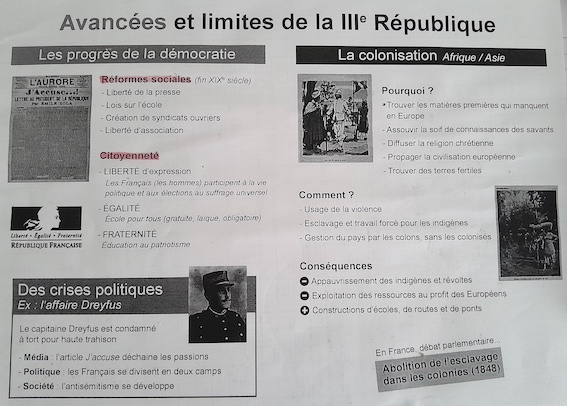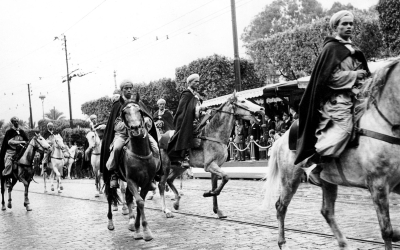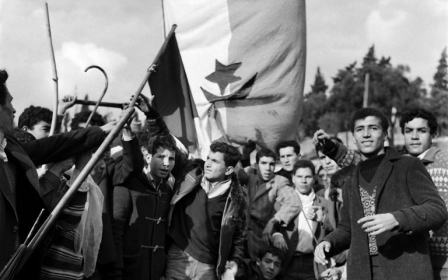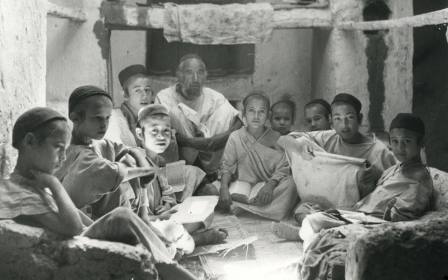France: How the 'positive' role of colonisation is still discussed in history textbooks
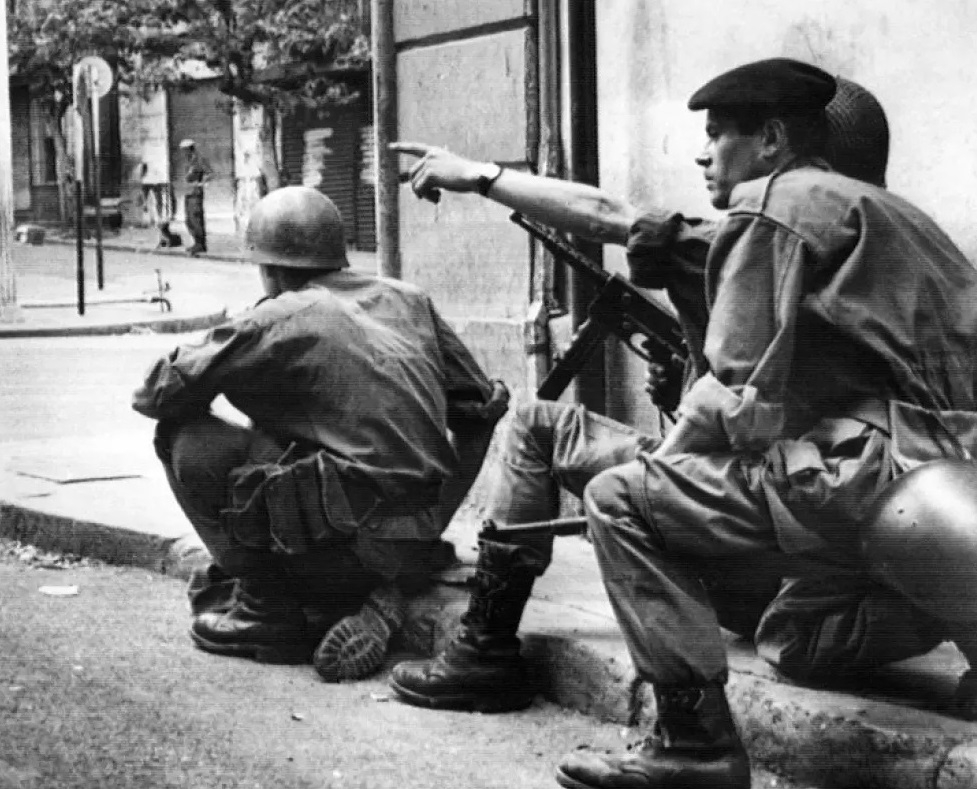
Teaching the history of colonisation remains problematic in France, as illustrated by a revision card recently distributed to Year 6 pupils in a primary school near Paris.
The sheet described the French colonial conquest as having both negative consequences - "impoverishment of the natives" and "exploitation of resources to the advantage of the Europeans" - and a positive effect - "construction of schools, roads and bridges".
Moreover, the document echoed the concept of a "civilising mission" used in the colonial propaganda of the Third Republic, France's system of government from 1870 to 1940, explaining that the country had conquered territories in Africa and Asia in the 19th century to "propagate the European civilisation" and "spread the Christian religion".
While recognising the use of violence, slavery and marginalisation against the colonised people, the revision card also listed the economic reasons for colonisation - the same as those put forward by the colonial ideology to justify the occupation, such as the search for raw materials and fertile land.
"I am upset but not surprised to learn that this description of colonisation with negative and positive points is used," Laurence De Cock, a teaching fellow of history and geography, told Middle East Eye.
New MEE newsletter: Jerusalem Dispatch
Sign up to get the latest insights and analysis on Israel-Palestine, alongside Turkey Unpacked and other MEE newsletters
"In primary education, teachers are not sufficiently trained in history. For most of them, the last history lessons date back to high school," she added.
'Gratitude of the nation'
In a book she co-wrote about "memories and history at the school of the republic", De Cock deplores the existence of biased interpretative frameworks that use a "positive/negative" grid to illustrate colonialism in primary school.
"Some teachers have in mind debates on colonisation that are political and not scientific," she told MEE.
This frame of reference appeared following the February 2005 law concerning "the gratitude of the nation and the national contribution for the benefit of repatriated French citizens," she explained.
The legislative act, drafted under the influence of pieds-noirs circles nostalgic for French Algeria, required in its article 4 "the recognition, by school curricula in particular, of the positive role of the French presence overseas, including in North Africa".
It further asked that those curricula "grant the history and sacrifices of the French army fighters from these territories [in reference to the Harkis, the native Muslim Algerians who served as auxiliaries in the French army] the eminent place to which they are entitled."
"The Mekachera law [named after the then-minister for veterans] raised the spectre of an official history, notably in article 4, where an ethically termed stance was specifically requested from the teacher, a value judgement in defiance of any critical judgement of the teaching of history," De Cock said.
Following protests from anti-colonial circles, the controversial article of law was finally withdrawn. But not without leaving its mark, according to the history teacher.
'It was a way of neutralising the debate in primary education, whereas it would never occur to anyone to be 50 percent for Hitler and 50 percent for the Jews'
- Laurence De Cock, history teacher
"It suddenly became apparent that we [teachers] had to be neutral. It was a way of neutralising the debate in primary education, whereas it would never occur to anyone to be 50 percent for Hitler and 50 percent for the Jews," she added.
However, during the 2018 presidential election campaign, Emmanuel Macron seemed to have settled the question by describing colonisation as a "crime against humanity" and "real barbarity".
He was the first French president to admit that the country carried out systematic torture in Algeria, adding that the misdeeds of the past needed to be faced with "courage and lucidity".
Two years after his election, he asked French historian Benjamin Stora to produce a report on memorial issues related to colonisation and the Algerian War of Independence (1954-1962).
The objective was to "break down the barriers" between the conflicting and painful memories of the two countries, with the aim of asserting "a new desire for reconciliation between the French and Algerian peoples".
"I want truth, recognition, otherwise we will never move forward," the French president later hammered home during a trip to Algiers in 2022.
'Ideological prejudices'
In the report Stora submitted to Macron, the historian, who subsequently chaired the joint French-Algerian "memories and truth" commission charged with reviewing France's colonial past in Algeria, stated that "there was still much to do, particularly in terms of national education".
"France must reclaim its history," Stora told MEE. "However, there is still the idea today that the history of colonisation is peripheral and not part of the national narrative."
Like De Cock, he regrets that the teaching of history is hostage to a framework of thought that does not report on the abuses committed during the colonial conquest and occupation, or water them down.
In 2019, a history assignment in a Year 6 class in the north-western city of Rennes sparked a major controversy by mentioning the alleged benefits of colonisation.
The text of the exercise explained that the empire had "brought the French language, medical care to the colonised populations" and "developed trains and roads".
As the Representative Council of Black Associations of France (CRAN) condemned the "unbearable colonial propaganda", the local education authority defended itself by arguing that the text had been "decontextualised" and that "the negative effects of colonisation had also been addressed".
In primary school, teachers build their history lessons based on the curricula developed by the Ministry of National Education as well as textbooks offered by the different publishing houses that share the school book market.
However, according to Stora, "these publishers do not all say the same thing about colonisation and some have ideological prejudices".
'Sugar-coated'
In 2009, four years after the Mekachera law, a survey on "colonisation and decolonisation in primary school learning" by the National Institute for Pedagogical Research (INRP) reported a "more or less euphemised account of colonial reality", pointing to "a permanent balancing between 'positive effects' and 'negative effects'".
The study added that "the oppositions and resistances of colonised people or people in the process of decolonisation were only very briefly mentioned and, in a certain way, very sugar-coated".
Although, according to De Cock, colonisation is better taught in secondary school (in Year 9) by teachers trained in history, she regrets that the subject is not "anchored in a more global narrative, despite colonialism being a founding act in world history since the 16th century".
In secondary school, colonial questions are widely tackled, but they are diluted in broader themes, where they appear as secondary sequences, she noted.
'In the final year, the colonial question is addressed through the lens of the Algerian War and the decolonisation process, whereas we should first study the origins by focusing on colonial penetration'
- Benjamin Stora, historian
In the final year of secondary school, for example, the Algerian War of Independence is associated with the history of the Fourth Republic (1946-1958) in a chapter "which aims [among other things] at showing how France ceased to be a colonial power".
Stora also decries this lack of focus.
"In the final year, the colonial question is addressed through the lens of the Algerian War and the decolonisation process, whereas we should first study the origins by focusing on colonial penetration, with all its consequences on the colonised populations," he told MEE.
According to Stora, himself the child of a Jewish family that fled Algeria at independence, dramatic events linked to the colonial conquest such as massacres, torture, land dispossessions and depopulation are still rarely discussed, mainly to avoid altering the national narrative.
De Cock further considers that the colonial question is caught in a power struggle.
"Today, it implies very strong identity issues, both on the side of those who claim to be heirs of this painful history and those who call for not revealing its dark sides to protect a national identity fantasised as indifferent to cultural differences and fundamentally resilient," she explained.
The teacher is rather pessimistic about the future.
She fears, under pressure from a right and far right nostalgic for French Algeria, "the return to a kind of national narrative" that could obscure completely the teaching of colonisation, especially in elementary school.
This article was translated from MEE's French edition (original).
Middle East Eye delivers independent and unrivalled coverage and analysis of the Middle East, North Africa and beyond. To learn more about republishing this content and the associated fees, please fill out this form. More about MEE can be found here.


